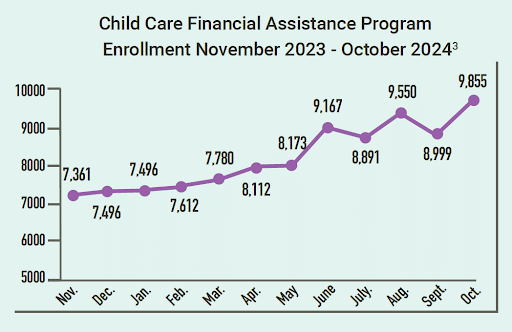Building Bright Futures (BBF) is responsible for monitoring Act 76, Vermont’s child care law. BBF submits a report about Act 76 to the House Committee on Human Services and the Senate Committee on Health and Welfare every year. BBF is tracking the effects of the law’s changes to and investments in Vermont’s child care system.
Act 76 makes significant and historic investments and policy changes in the early childhood field by expanding eligibility for the Child Care Financial Assistance Program (CCFAP) for Vermont families. This includes increasing reimbursement rates for child care providers and small business owners, and outlining a potential path towards expanding access to high-quality pre-K, afterschool care, and summer care. Act 76 became law on June 20, 2023, and its elements will be implemented in stages from July 2023 to January 2026.
Early Childhood Grand Rounds on Monitoring Act 76
March 24, 2025
Building Bright Futures and Vermont’s Early Childhood Data & Policy Center hosted a panel on Act 76, Vermont’s historic child care bill, and other recent investments and programs in Vermont’s early education and child care system. Panelists shared insights into system-wide data, successes, and ongoing challenges, as well as the collaborative efforts of organizations contributing to these advancements.
News About Act 76

Video and Highlights from Our Act 76 Grand Rounds Panel

BBF Publishes Annual Report on Act 76 Monitoring

Read the Summary of Our Report on Act 76 Monitoring

